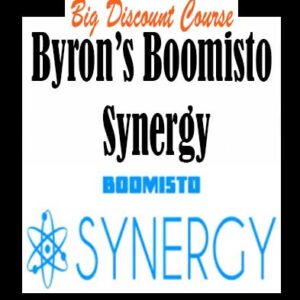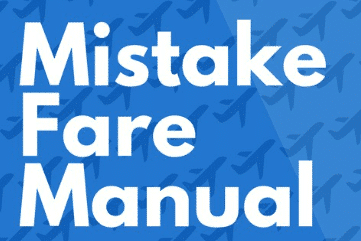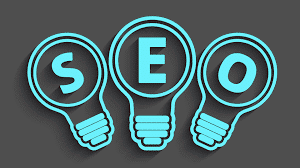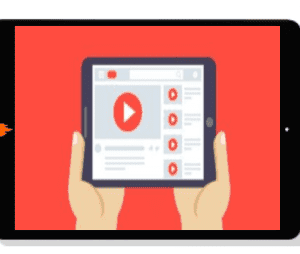Description
Business Model Canvas Explained – The Business Model Analyst, Daniel Pereira – Business Model Canvas Explained – The Business Model Analyst, Business Model Canvas Explained – The Business Model Analyst download, Daniel Pereira – Business Model Canvas Explained – The Business Model Analyst review, Business Model Canvas Explained – The Business Model Analyst free torent
Daniel Pereira – Business Model Canvas Explained – The Business Model Analyst
Business Model Canvas Explained
17 Real Examples Of The Business Model Canvas
Hours of Research just 1-click away
PDF File Format
Instant Download
DESCRIPTION
SUPER GUIDE: Business Model Canvas Explained
The Super Guide about Business Model Canvas Explained is a complete guide on what exactly a business model canvas is and how to go about constructing yours correctly.
Table of content
1. Introduction
2. What Is Business Model Canvas?
3. What Are The Benefits Of The Bmc?
It Is Focused
Bmc Is Clear And Concise
Targets Customers’ Needs
Reduces The Risk Of Failure
Scientific Framework
Visual Format
Accessibility
Flexibility
4. Business Model Canvas Blocks Explained
1. Customer Segment
1. Why Is Customer Segmentation Important?
 More Effective Messaging
Improved Products
Improved Customer Targeting
Higher Returns On Marketing Investments
2. Customer Segmentation Models
Demographic
Geographic
Psychographic
Technographic
Behavioral
Needs-Based
Value-Based
3. How To Determine Customer Segment?
Depth Of Pain
Budget
Reach
Market Size
Value
4. Types Of Customer Segments
Mass Market
Niche Market
Segmented
Diversified
Multilateral Platform (Or Multilateral Markets)
2. Value Proposition
1. Elements For Value Creation
Newness
Performance
Personalization
Status
Price
Cost Reduction
Risk Reduction
Accessibility
Convenience/Usability
2. How To Design A Value Proposition
3. Distribution Channels
1. Why Are Distribution Channels Important?
Timely Delivery Of Products
Maintain Stock Of Products
Provides Market Information
Promotion Of Goods
Provide Finance
Generates Employment
Distribution Of Risk
2. Phases Of The Distribution Channel
Awareness
Evaluation
Purchase
Delivery
After-Sales
3. 3 Forms Of Distribution Channels
Direct Distribution Channel
Indirect Distribution Channel
Hybrid Distribution Channel
4. Types Of Distribution Channels
Personal Sale
Internet
Telephone
Traditional And Electronic Mail
Retailers
Representatives
Distributors
5. How To Choose The Right Distribution Channel For Your Product
Consider Your Company’s Goals
Be Practical
Look For Natural Partners
Minimize Conflict
4. Customer Relationship
1. Motivations For Customer Relationships
1. Customer Acquisition
Content Marketing
Email Marketing
Social Media Marketing
2. Customer Retention
Defending A Point Of View
Invoking The Ego
Reducing Pain
Offering Extra Benefits
Making Personal
Maintaining Quality
Choosing The Communication Channel
3. Sales Expansion
2. Customer Relationship Categories
Self-Service
Automated Services
Communities
Personal Assistance
Dedicated Personal Assistance
Co-Creation
3. Importance Of Customer Relationships
5. Revenue Streams
1. How To Choose Your Revenue Streams
Choose The Most Realistic Stream
Extend Your Value
Attract The Right Investors
Be Flexible
2. Different Ways To Generate Revenue Streams
Direct Sales
Freemium
Asset Sale
Usage Fee
Subscription Fee
Lending, Renting, Or Leasing
Licensing
Brokerage Fee
Advertising
3. Pricing Mechanisms
1. In The Fixed-Price System
List Pricing
Product Feature Dependent
Customer Segment Dependent
Volume Dependent
2. In The System Of Dynamic Price
Negotiation (Bargaining)
Yield Management
Real-Time Market
Auctioning
6. Key Resources
1. Types Of Key Resources
Tangible
Intangible
Human
Financial
2. Key Resources And Value Propositions
Product-Driven Businesses
Scope-Driven Businesses
Infrastructure-Driven Businesses
3. How To Determine Your Key Resources
7. Key Activities
1. Categories Of Key Activities
Production
Problem-Solving
Platform/Network
2. Typical Activities
1. Research And Development
New Product Research
New Product Development
Updates Of Existing Products
Quality Checks
Innovation
2. Production
Product Selection And Design
Production Process Selection
Correct Production Capacity
Production Planning
Production Control
Quality And Cost Control
Inventory Control
Machine Maintenance And Replacement
3. MarketingStrategy
Market Research
Product Development
Communications
Sales Support
Events
4. Sales And Customer Service
3. Which Key Activities Are Critical To Your Value Proposition?
Brainstorm And Interview
Work With A Capability Map
Work With An Operating Model
8. Key Partners
1. Types Of Key Partners
Supplier
Non-Competitors
Joint Ventures
Co-Opetition
2. Motivations For Partnerships
Optimization And Economy Of Scale
Reduction Of Risk And Uncertainty
Acquisition Of Particular Resources And Activities
3. Observations When Selecting Key Partners
9. Cost Structure
1. Cost Structure Types
Value-Driven Structure
Cost-Driven Structure
2. Characteristics
Fixed Costs
Variable Costs
Economies Of Scale
Economies Of Scope
3. Importance Of Cost Structures
4. What To Ask When Creating A Cost Structure
5. Real Examples Of The Business Model Canvas
1. Airbnb’s Business Model Canvas
Airbnb’s Customer Segments
Airbnb’s Value Propositions
Airbnb’s Channels
Airbnb’s Customer Relationships
Airbnb’s Revenue Streams
Airbnb’s Key Resources
Airbnb’s Key Activities
Airbnb’s Key Partners
Airbnb’s Cost Structure
2. Linkedin’s Business Model Canvas
Linkedin’s Customer Segments
Linkedin’s Value Propositions
Linkedin’s Channels
Linkedin’s Customer Relationships
Linkedin’s Revenue Streams
Linkedin’s Key Resources
Linkedin’s Key Activities
Linkedin’s Key Partners
Linkedin’s Cost Structure
3. Google’s Business Model Canvas
Google’s Customer Segments
Google’s Value Propositions
Google’s Channels
Google’s Customer Relationships
Google’s Revenue Streams
Google’s Key Resources
Google’s Key Activities
Google’s Key Partners
Google’s Cost Structure
4. Facebook’s Business Model Canvas
Facebook’s Customer Segments
Facebook’s Value Propositions
Facebook’s Channels
Facebook’s Customer Relationships
Facebook’s Revenue Streams
Facebook’s Key Resources
Facebook’s Key Activities
Facebook’s Key Partners
Facebook’s Cost Structure
5. Apple’s Business Model Canvas
Apple’s Customer Segments
Apple’s Value Propositions
Apple’s Channels
Apple’s Customer Relationships
Apple’s Revenue Streams
Apple’s Key Resources
Apple’s Key Activities
Apple’s Key Partners
Apple’s Cost Structure
6. Amazon’s Business Model Canvas
Amazon’s Customer Segments
Amazon’s Value Propositions
Amazon’s Channels
Amazon’s Customer Relationships
Amazon’s Revenue Streams
Amazon’s Key Resources
Amazon’s Key Activities
Amazon’s Key Partners
Amazon’s Cost Structure
7. Uber’s Business Model Canvas
Uber’s Customer Segments
Uber’s Value Propositions
Uber’s Channels
Uber’s Customer Relationships
Uber’s Revenue Streams
Uber’s Key Resources
Uber’s Key Activities
Uber’s Key Partners
Uber’s Cost Structure
8. Netflix’s Business Model Canvas
Netflix’s Customer Segments
Netflix’s Value Propositions
Netflix’s Channels
Netflix’s Customer Relationships
Netflix’s Revenue Streams
Netflix’s Key Resources
Netflix’s Key Activities
Netflix’s Key Partners
Netflix’s Cost Structure
9. Nike’s Business Model Canvas
Nike’s Customer Segments
Nike’s Value Propositions
Nike’s Channels
Nike’s Customer Relationships
Nike’s Revenue Streams
Nike’s Key Resources
Nike’s Key Activities
Nike’s Key Partners
Nike’s Cost Structure
10. Starbucks’ Business Model Canvas
Starbucks’ Customer Segments
Starbucks’ Value Propositions
Starbucks’ Channels
Starbucks’ Customer Relationships
Starbucks’ Revenue Streams
Starbucks’ Key Resources
Starbucks’ Key Activities
Starbucks’ Key Partners
Starbucks’ Cost Structure
11. Sephora’s Business Model Canvas
Sephora’s Customer Segments
Sephora’s Value Propositions
Sephora’s Channels
Sephora’s Customer Relationships
Sephora’s Revenue Streams
Sephora’s Key Resources
Sephora’s Key Activities
Sephora’s Key Partners
Sephora’s Cost Structure
12. Ikea’s Business Model Canvas
Ikea’s Customer Segments
Ikea’s Value Propositions
Ikea’s Channels
Ikea’s Customer Relationships
Ikea’s Revenue Streams
Ikea’s Key Resources
Ikea’s Key Activities
Ikea’s Key Partners
Ikea’s Cost Structure
13. Walmart’s Business Model Canvas
Walmart’s Customer Segments
Walmart’s Value Propositions
Walmart’s Channels
Walmart’s Customer Relationships
Walmart’s Revenue Streams
Walmart’s Key Resources
Walmart’s Key Activities
Walmart’s Key Partners
Walmart’s Cost Structure
14. Zara’s Business Model Canvas
Zara’s Customer Segments
Zara’s Value Propositions
Zara’s Channels
Zara’s Customer Relationships
Zara’s Revenue Streams
Zara’s Key Resources
Zara’s Key Activities
Zara’s Key Partners
Zara’s Cost Structure
15. Mcdonald’s Business Model Canvas
Mcdonald’s Customer Segments
Mcdonald’s Value Propositions
Mcdonald’s Channels
Mcdonald’s Customer Relationships
Mcdonald’s Revenue Streams
Mcdonald’s Key Resources
Mcdonald’s Key Activities
Mcdonald’s Key Partners
Mcdonald’s Cost Structure
16. Spotify’s Business Model Canvas
1. Spotify’s Customer Segments
2. Spotify’s Value PropositionsValue Propositions To Users
1. Value Propositions To Content Creators
2. Value Propositions To Advertisers
3. Spotify’s Channels
4. Spotify’s Customer Relationships
5. Spotify’s Revenue Streams
6. Spotify’s Key Resources
7. Spotify’s Key Activities
8. Spotify’s Key Partners
9. Spotify’s Cost Structure
17. Coca-Cola’s Business Model Canvas
Coca-Cola Customer Segments
Coca-Cola’s Value Propositions
Coca-Cola’s Channels
Coca-Cola’s Customer Relationships
Coca-Cola’s Revenue Streams
Coca-Cola’s Key Resources
Coca-Cola’s Key Activities
Coca-Cola’s Key Partners
Coca-Cola’s Cost Structure
6. Some Tips For Beginners
7. A Step-By-Step Guide To Creating A Business Model Canvas
1. Step 1: Customer Segments
Segment Dimensions
Segment Composition
Problems, Needs, Habits & Current Alternatives
Output
2. Step 2: Value Propositions
1. Output
3. Step 3: Channels
1. Output
4. Step 4: Customer Relationships
1. Output
5. Step 5: Revenue Streams
1. Output
6. Step 6: Key Activities
1. Outputs
7. Step 7: Key Resources
1. Outputs
8. Step 8: Key Partnerships
1. Outputs
9. Step 9: Cost Structure
1. Outputs
10. Step 10: Applications & Analysis
1. Core Applications
2. Competitiveness
8. What To Do After
9. What Does The Business Model Canvas Lack?
Strategy Is Not Taken Into Account
There Can Be More To Profits Than Costs And Revenues
It Is Not In The Right Order
It Does Not Show Any Interconnections
It Does Not Acknowledge The Company’s Role Within Its Ecosystem
Competition, History, And Other External Factors Are Absent
10. Conclusion
Read an excerpt from this Business Model Canvas Explained Super Guide:
“The Business Model Canvas (BMC) is a strategic management tool that provides a visual representation of a business’s plan for delivering value to its customers and making money. It is especially helpful for quickly conveying the key facets of a business on one page, instead of using an extensive traditional business plan spread across multiple pages. “
This is must-have knowledge for entrepreneurs and business model analysts and consultants. If you want to dominate business models this super guide was made especially for you






![[Download] Private Wealth Academy – Beat The Ticket Secrets (2022) [Download] Private Wealth Academy – Beat The Ticket Secrets (2022)](https://thecoursearena.com/wp-content/uploads/2023/11/Private-Wealth-Academy-–-High-Credit-Secrets-300x300.jpg)





![[Download] Viking PLR (2021) [Download] Viking PLR (2021)](https://thecoursearena.com/wp-content/uploads/2023/11/fire-23-2-300x300.jpg)













![[Download] Trevor Carr – Intrinsic (2021) [Download] Trevor Carr – Intrinsic (2021)](https://thecoursearena.com/wp-content/uploads/2023/11/fire-30-1-1-300x300.jpg)







